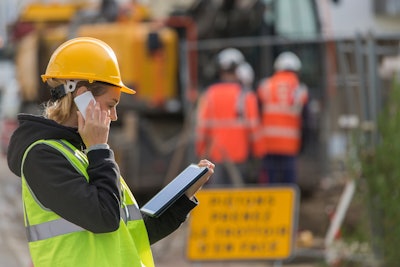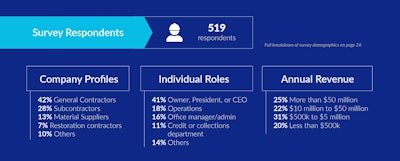
Constantly chasing down payments? According to a new report from construction software company Levelset, you’re not alone.
Just 12% of the 519 U.S. construction companies surveyed say they always get paid on time, citing problems with project financing, customer cash flow and general contractor mismanagement.
Cash flow issues and payment delays can threaten the productivity and financial stability of a construction business, especially amid rising costs, supply chain issues and labor shortages.
 Levelset
Levelset
Contractors working on residential projects are more than twice as likely as those working on public projects to report getting paid within 30 days, with residential construction contractors saying they are paid in 30 days or less 48% of the time and public construction contractors saying that only happens 21% of the time.
Significantly slow payments of 60 days or more are three times more likely on public construction projects than on residential construction projects, according to the survey participants. Residential contractors say it happens rarely, just 6% of the time, while public project contractors say it happens nearly one out of five times (18%).
The added complexity associated with commercial and public construction projects may be responsible for more frequent payment issues, says Levelset.
Companies most commonly offer payment terms of 30 days or less, but fewer than half of construction businesses report getting paid within 30 days – even when clear terms are spelled out in their agreements.
 Levelset
Levelset
To ensure prompt payment, a greater portion of contractors working on residential construction projects believe that interpersonal communication and high-quality work, relative to their commercial and public counterparts, are vital to prompt payment. Conversely, a greater percentage of commercial and public project contractors believe that process-related variables play a greater role in timely payment.
Late payments have numerous consequences, from wasted staff time and resources, to reduced profit, to project delays or stoppages. Here are a few tactics construction companies can use to ensure payment:
- Prequalify customers to confirm they are financially secure
- Require a deposit before beginning work
- Accept payments electronically
- Send an invoice reminder
- Make follow-up phone calls
- Add a late payment penalty or interest fee
- Send a notice of intent to lien or a demand letter
- File a mechanics lien











